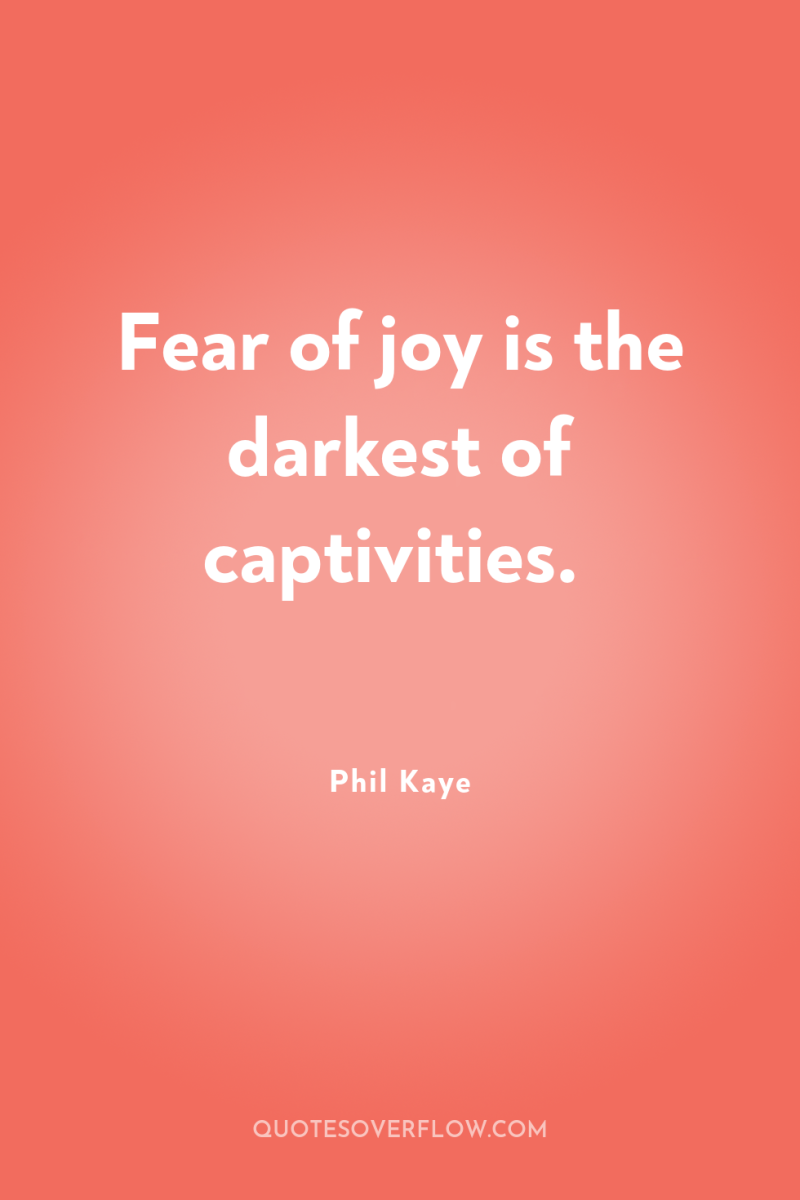
1
Fear of joy is the darkest of captivities.Phil Kaye
2
How could a society produce such masters and such monsters?Meg Wiviott
3
Christine did not live, or love, as most people do. She lived boundlessly, as generous as she could be cruel, prepared to give her life at any moment for a worthy cause, but rarely sparing a thought for the many casualties that fell in her wake.Clare Mulley
4
Obsessed with Christine to the end, his last statement as he left his cell was, 'to kill is the final possession'. But Muldowney was wrong. He had never possessed Christine; the resistance burning within her was too great.Clare Mulley
5
How could a large land empire thrive and dominate in the modern world without reliable access to world markets and without much recourse to naval power? Stalin and Hitler had arrived at the same basic answer to this fundamental question. The state must be large in territory and self-sufficient in economics, with a balance between industry and agriculture that supported a hardily conformist and ideologically motivated citizenry capable of fulfilling historical prophecies - either Stalinist internal industrialization or Nazi colonial agrarianism. Both Hitler and Stalin aimed at imperial autarky, within a large land empire well supplies in food, raw materials, and mineral resources. Both understood the flash appeal of modern materials: Stalin had named himself after steel, and Hitler paid special attention to is production. Yet both Stalin and Hitler understood agriculture as a key element in the completion of their revolutions. Both believed that their systems would prove their superiority to decadent capitalism, and guarantee independence from the rest of the world, by the production of food.p. 158.Timothy Snyder
6
In time of war, under the banner of an enemy recognisable as such, a foreigner from a camp outside the lines, the imperial idea grew strong in confidence and temper. The British democracy rallied to the call of a strong leadership, and it was not just in rhetorical enthusiasm but with considerable personal satisfaction that Churchill hailed the year 1940-1 as the British people's 'finest hour'. He, with other imperialists, was delighted by the fact that, when it came to the sticking-place, it was the old-fashioned loyalty of the reactionary British Empire to all that was symbolised by allegiance to Crown and country that came forward to save European civilisation from utter overthrow by German tyranny.. The days of showing the flag–even for only a momentary glimpse, such as wall that inhabitants of Greece and Crete and Dieppe had of it–had returned. The Empire was the Empire once more, and to 10, Downing Street returned that imperial control that two generations of Dominion opinion had combined to condemn as sinister.A.P. Thornton
7
All Nazi champions insist again and again that Marxism and Bolshevism are the quintessence of the Jewish mind, and that it is the great historic mission of Nazism to root out this pest. It is true that this attitude did not prevent the German nationalists either from coöperating with the German communists in undermining the Weimar Republic, or from training their black guards in Russian artillery and aviation camps in the years 1923—1933, or– in the period from August, 1939, until June, 1941–from entering into a close political and military complicity with Soviet Russia. Nevertheless, public opinion supports the view that Nazism and Bolshevism are philosophies– Weltanschauungen–implacably opposed to each other.Ludwig Von Mises
8
What should our second generation have done, what should it do with the knowledge of the horrors of the extermination of the Jews? We should not believe we can comprehend the incomprehensible, we may not compare the incomparable, we may not inquire because to inquire is to make the horrors an object of discussion, even if the horrors themselves are not questioned, instead of accepting them as something in the face of which we can only fall silent in revulsion, shame and guilt. Should we only fall silent in revulsion, shame and guilt? To what purpose? .Bernhard Schlink
9
Exploration! Exploring the past! We students in the camps seminar considered ourselves radical explorers. We tore open the windows and let in the air, the wind that finally whirled away the dust that society had permitted to settle over the horrors of the past. We made sure people could see. And we placed no reliance on legal scholarship. It was evident to us that there had to be convictions. It was just as evident as conviction of this or that camp guard or police enforcer was only the prelude. The generation that had been served by the guards and enforcers, or had done nothing to stop them, or had not banished them from its midst as it could have done after 1945, was in the dock, and we explored it, subjected it to trial by daylight, and condemned it to shame. .Bernhard Schlink
10
For a once renowned woman who loved telling tales of dodging bullets, wielding grenades and subverting dogs trained to kill, Christine's story is, surprisingly, little known today.Clare Mulley
11
She could do anything with dynamite, except eat it.Clare Mulley
12
May be you find out I could be useful getting people out of camps and prisons in Germany - just before they got shot. I should love to do it and I like to jump out of a plane even every day.Christine Granville